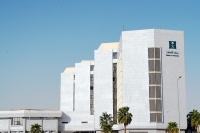
The Anti-Concealment Law in the Kingdom of Saudi Arabia is a set of legal regulations governing all aspects related to concealment, including its definition and the entity responsible for imposing penalties on violators. It was issued on August 20, 2020, with the aim of combating concealment crimes in the Kingdom . Definition of concealment in the Anti-Concealment Law The law defines concealment as an agreement or arrangement through which a person enables another non-Saudi individual to enga...

The Copyright Law in the Kingdom of Saudi Arabia is a set of rules and regulations governing the rights of any person who has created literary, scientific, or artistic work within the Kingdom. It was issued by Royal Decree in 2003, comprising twenty-eight articles. These rights remain protected for a period of fifty years after the death of the author. The provisions of the law apply to works of both Saudi and non-Saudi authors that are published, produced, performed, or displayed for the fir...
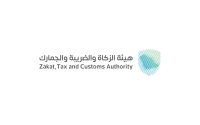
The Income Tax Law gathers rules and regulatory procedures for income tax within the Kingdom of Saudi Arabia . It was issued on March 6, 2004, and specifies taxable persons. Stipulations within the Income Tax Law The income Tax Law specifies Taxable individual and defines the concept of residency, stipulating that a natural person is considered a resident in the Kingdom for the tax year if they meet either of the following conditions: having a permanent residence in the Kingdom and residing in ...
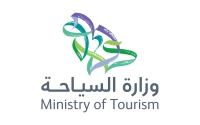
Tourism Law in the Kingdom of Saudi Arabia is a set of legal rules governing the tourism sector in the Kingdom. It covers the classification of tourism activities, services, and professions and oversight of tourism operations, including tourist facilities and destinations, and the responsible entity. Additionally, it specifies penalties for individuals or companies that violate its provisions. History of the Tourism Law in Saudi Arabia The Tourism Law was issued in 2014. Article Thirteen was am...
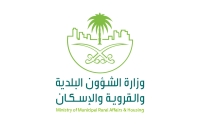
Law of White Land is a law that imposes annual fees on white lands to achieve real estate balance, provide residential lands at reasonable prices, protect fair competition, and combat monopolistic practices. It was issued by Royal Decree in 2015. White land taxes The law imposes an annual fee of 2.5 percent of the value of the land on white lands owned by one or more natural or non-governmental legal persons. The criteria for the assessment of land value cover the location and uses of the land,...
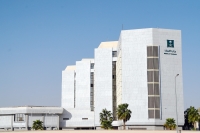
The Law of Trademarks is a set of legal rules governing trademarks and their registration in the Kingdom of Saudi Arabia . It encompasses provisions for renewal, cancellation of registration, transfer of ownership, mortgage, and seizure of trademarks, as well as licensing agreements, collective marks, offenses, penalties, and the entity responsible for controlling and enforcing them. It was issued on March 15, 2002. Characteristics of the Law of Trademarks The law defined trademarks as names th...
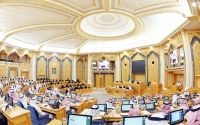
Shura Council in the Kingdom of Saudi Arabia is recognized as one of the state authorities defined in the Basic Law of Governance . It is composed of a Speaker and 150 members chosen by the King from among scholars, experts, and specialists. The council is tasked with expressing opinions on the general policies of the state, which are referred to it by the Prime Minister. Specifically, the council has the following responsibilities: Discussing the general plan for economic and social developmen...

The Law of Private Health Institutions in the Kingdom of Saudi Arabia is a set of legal regulations governing the operation of health institutions owned by the private sector. These institutions specialize in providing treatment, disease diagnosis, or any health-related services, such as: hospitals, medical complexes, clinics, and radiology centers. Stages of the Private Health Institutions Law The Law of Private Health Institutions was initially issued in 1987 to regulate private medical insti...

The Law of Printed Materials and Publication in the Kingdom of Saudi Arabia is a law that regulates the activities related to printing and publishing within the Kingdom, under the jurisdiction of the Ministry of Media . Issued on November 29, 2000, it encompasses various activities subject to the law, detailing the controls, provisions, and penalties associated with publishing and printing processes. The Law of Printed Materials and Publication includes a variety of activities, such as: printed...
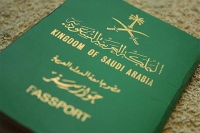
The Law of Diplomatic and Special Passports in the Kingdom of Saudi Arabia is a law that governs the issuance of diplomatic and special passports for the purpose of granting their bearers special facilities to perform their missions or because of their personal status. This law was issued upon a Royal Decree during the reign of King Faisal Bin Abdulaziz Al Saud on June 4, 1972. Diplomatic passports According to Article Two of the Law of Diplomatic and Special Passports in Saudi Arabia, diplomat...
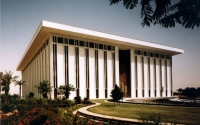
The Saudi Arabian Currency Law is a set of legal regulations governing the unit of currency in the Kingdom of Saudi Arabia, 'the Saudi Riyal' (SAR) . It outlines the value of the Saudi Riyal in fine gold, the minting, printing, and issuance of the currency, its denominations in both coin and paper forms, and the method of signing Saudi banknotes. History of the Saudi Arabian Currency Law The first currency law in the Kingdom was issued in 1928 under the name Hejazi Najdi Currency Law,...

Photography in public places in the Kingdom of Saudi Arabia is not prohibited except in specific areas, which are as follows: photography in public locations, whether by mobile phones equipped with a camera or the like, which leads to infringing on people’s private lives negatively or defaming or causing harm to them. Photography is permitted in public places unless a sign prohibiting photography is posted. According to the Anti-Cyber Crime Law, the penalty for the perpetrator is imprisonment...